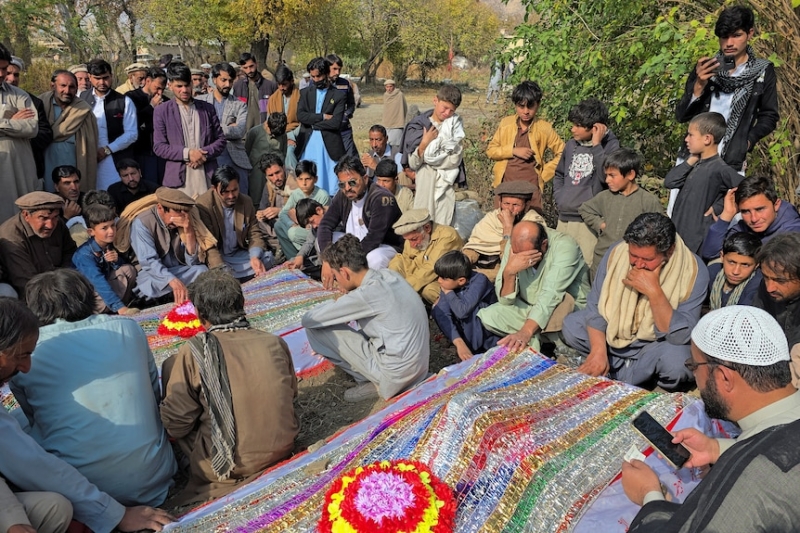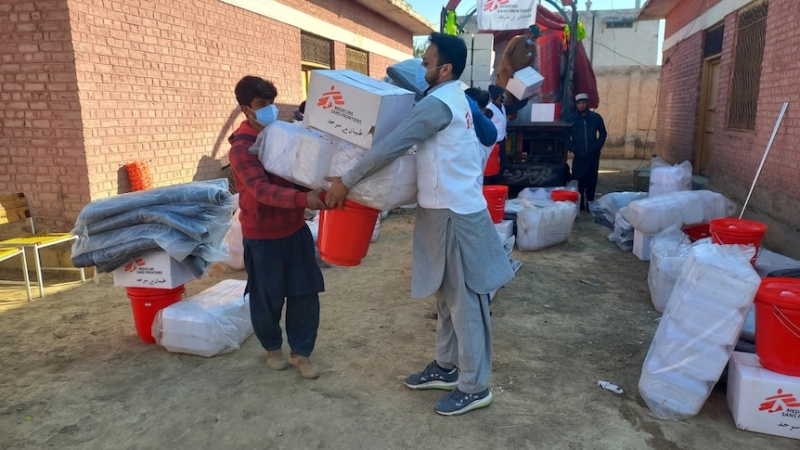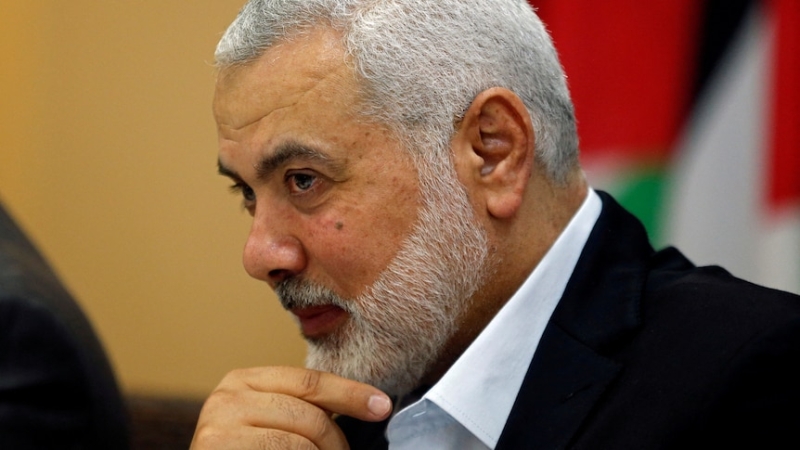Médecins Sans Frontières recently delivered critical support to families displaced by violence in Kurram District, Khyber Pakhtunkhwa. (Supplied: MSF Pakistan)
In short:
Charities say dozens of children have died in north-west Pakistan because a blockade of the area has caused catastrophic shortages in supplies.
Provincial authorities have dismissed reports of a medicine shortage.
What's next:
The Parachinar-Peshawar highway and the Pakistan-Afghanistan border are both closed to everyone but the armed forces after clashes last month.
At least 31 children have died due to medicine shortages in north-west Pakistan caused by prolonged road blockades.
The closures in the Kurram district in Khyber Pakhtunkhwa province have paralysed medical facilities, leaving hundreds of thousands stranded without essential supplies.
The Edhi Foundation has launched air ambulance operations to deliver emergency supplies and evacuate critically ill patients.
Saad Edhi, the organisation's spokesman, warned the efforts were falling short.
"Roads are sealed, there is a shortage of supplies. The dire need is for the medicines but now there is very little ration left among the people," he said.
Parachinar's District Hospital has officially recorded 31 deaths of children since the start of October. But Mr Edhi said the figure was higher.
"This is the record of only [the] government hospital," he said.
"The record of deaths at other private hospitals is separate.
"There are a few children who died in their homes and their last rites were performed.
"The death toll is more than what is out there — more than 50."
Dr Syed Mir Hassan Jan, head of the District Hospital in Parachinar, said the situation was starting to improve at the hospital as aid came in, but said the public was still "tense".
He confirmed 31 children had died due to several causes including illnesses related to the harsh winter, premature births and issues arising from surgeries.
Provincial authorities have dismissed reports of a medicine shortage despite widespread local media reports it had killed more than 60 adults and children.
"I can assure you that these deaths were not due to lack of facilities," advisor barrister for the chief minister Muhammad Ali Saif said at a press conference on December 18.
"There may be other maternity-related issues. Misunderstanding is being spread."
Area blockaded after clashes
The Parachinar-Peshawar highway and the Pakistan-Afghanistan border are both closed to everyone but the armed forces, following last month's attack on a convoy of vehicles and subsequent armed clashes that left over 130 people dead.

People mourn over the graves of relatives who were killed after gunmen opened fire on passenger vehicles in the Kurram tribal district last month. (Reuters)
The clashes flared on November 21 when gunmen ambushed a vehicle convoy and killed 52 people, mostly Shiite Muslims.
The attack triggered retaliatory gunfire and arson.
The violence has its roots in decades-old sectarian tensions between Shia and Sunni Muslim communities, further inflamed by disputes over land.
The blockades have left thousands without access to medicine, fuel, education or livelihoods, deepening the suffering of the already vulnerable population.
Authorities have faced growing criticism for their inability to restore order.
Last week, officials ordered warring tribes to surrender their weapons in an effort to curb the violence.
But Shia community leaders have voiced concerns that disarmament will leave them exposed to further attacks.
Mr Edhi told the ABC that despite the efforts, the situation had not improved.
"The situation on the ground is not normal," Mr Edhi said.
"[The] government should make both the groups sit and talk to each other. They tried but failed. But if they want, they can do it at their level."





